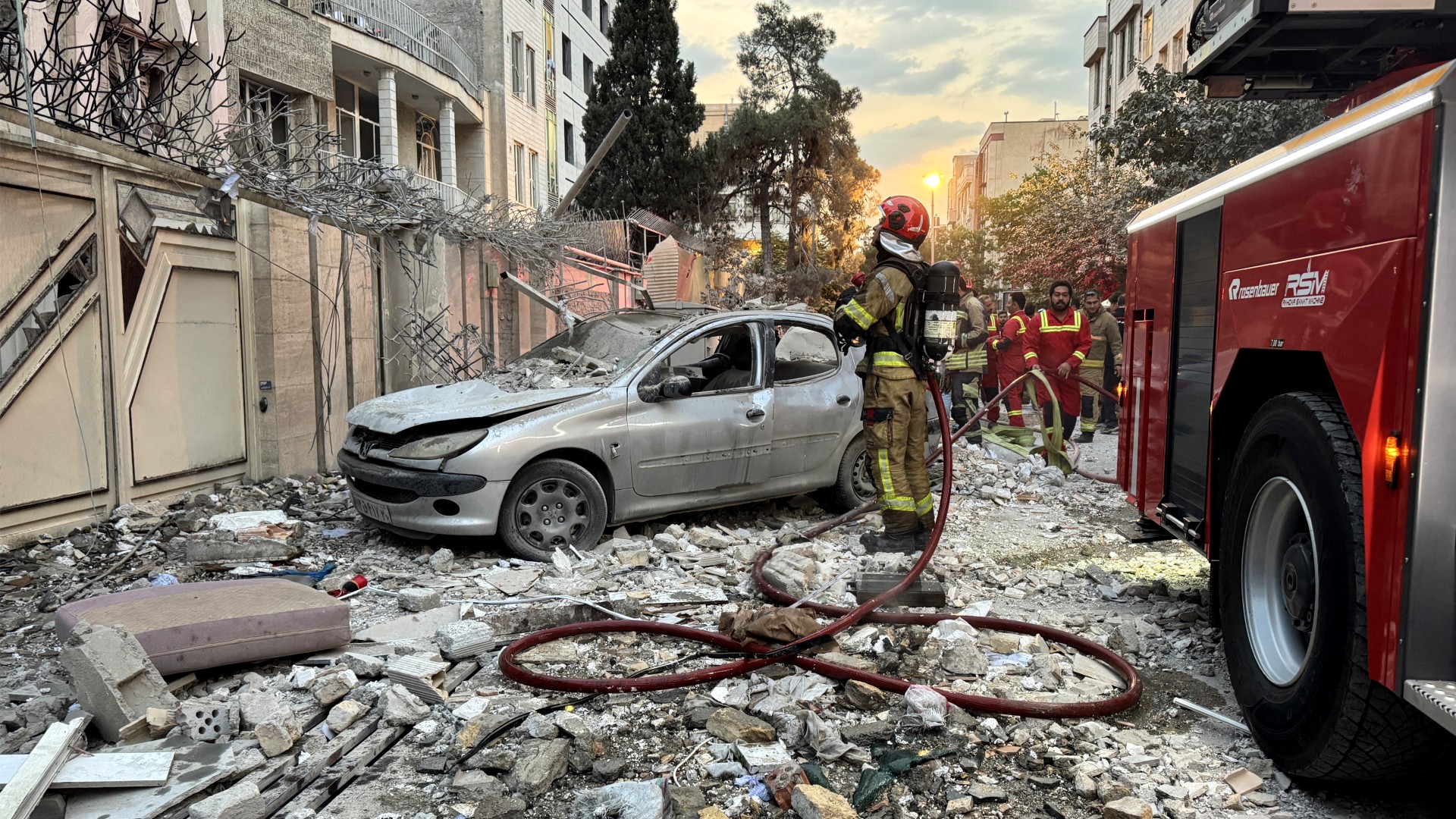British warship repels 'largest Houthi attack to date' in the Red Sea
Western allies warn of military response to Iranian-backed Yemeni rebels if attacks on ships continue

A free daily email with the biggest news stories of the day – and the best features from TheWeek.com
You are now subscribed
Your newsletter sign-up was successful
A British warship has shot down seven drones in the "largest Houthi attack to date" in the Red Sea.
Iranian-backed Houthi rebel fighters in Yemen deployed drones headed for HMS Diamond as well as commercial vessels on Tuesday night, said UK Defence Secretary Grant Shapps. A joint UK-US operation shot down at least 21 of the Iranian-produced, bomb-carrying drones and missiles.
It was "the largest attack yet" in a spate of Houthi violence targeting ships in the Red Sea, said Shapps. He warned of a response from UK and its allies if the group continued its "illegal attacks". "We will take the action needed to protect innocent lives and the global economy," he said, adding that he had "no doubt" that Iranians were "heavily behind" the strikes.
The Week
Escape your echo chamber. Get the facts behind the news, plus analysis from multiple perspectives.

Sign up for The Week's Free Newsletters
From our morning news briefing to a weekly Good News Newsletter, get the best of The Week delivered directly to your inbox.
From our morning news briefing to a weekly Good News Newsletter, get the best of The Week delivered directly to your inbox.
The "complex" Houthi attack, which caused no reported injuries or damage, is the 26th in the Red Sea since November, said The Independent. The group initially began "targeting ships bound for Israel" in retaliation for its war on Hamas in Gaza, before "quickly extending their attacks to all ships in the area".
The most recent strike has put "the entire Middle East on its toes", said Metro and comes before a scheduled UN security council vote, which may "condemn and demand an immediate halt" to the attacks on commercial and shipping vessels, added Sky News. The US is leading a coalition of nations patrolling the area to prevent disruption to global trade and supply lines.
Recent attacks have "forced shipping companies to divert traffic" from the Red Sea, said The Times, which carries an estimated $1 trillion in goods every year. They have increased the "rebel group's standing in the region", but pressure is increasing from a number of Arab governments who "support retaliation against the Houthis", including Saudi Arabia, which has been in conflict with the militia since 2015.
A free daily email with the biggest news stories of the day – and the best features from TheWeek.com
Richard Windsor is a freelance writer for The Week Digital. He began his journalism career writing about politics and sport while studying at the University of Southampton. He then worked across various football publications before specialising in cycling for almost nine years, covering major races including the Tour de France and interviewing some of the sport’s top riders. He led Cycling Weekly’s digital platforms as editor for seven of those years, helping to transform the publication into the UK’s largest cycling website. He now works as a freelance writer, editor and consultant.
-
 6 exquisite homes with vast acreage
6 exquisite homes with vast acreageFeature Featuring an off-the-grid contemporary home in New Mexico and lakefront farmhouse in Massachusetts
-
 Film reviews: ‘Wuthering Heights,’ ‘Good Luck, Have Fun, Don’t Die,’ and ‘Sirat’
Film reviews: ‘Wuthering Heights,’ ‘Good Luck, Have Fun, Don’t Die,’ and ‘Sirat’Feature An inconvenient love torments a would-be couple, a gonzo time traveler seeks to save humanity from AI, and a father’s desperate search goes deeply sideways
-
 Political cartoons for February 16
Political cartoons for February 16Cartoons Monday’s political cartoons include President's Day, a valentine from the Epstein files, and more
-
 Munich Security Conference: a showdown between Europe and Trump?
Munich Security Conference: a showdown between Europe and Trump?Today’s Big Question Report suggests European leaders believe they can no longer rely on the US for military support – but decoupling is easier said than done
-
 Taiwan eyes Iron Dome-like defence against China
Taiwan eyes Iron Dome-like defence against ChinaUnder the Radar President announces historic increase in defence spending as Chinese aggression towards autonomous island escalates
-
 Is conscription the answer to Europe’s security woes?
Is conscription the answer to Europe’s security woes?Today's Big Question How best to boost troop numbers to deal with Russian threat is ‘prompting fierce and soul-searching debates’
-
 How long can Nato keep Donald Trump happy?
How long can Nato keep Donald Trump happy?Today's Big Question Military alliance pulls out all the stops to woo US president on his peacemaker victory lap
-
 How far would Russia go for Iran?
How far would Russia go for Iran?Today's Big Question US air strikes represent an 'embarrassment, provocation and opportunity' all rolled into one for Vladimir Putin
-
 How the Israel-Iran conflict broke out
How the Israel-Iran conflict broke outThe Explainer Israel's strike on Iran's nuclear and missile programmes was years in the planning
-
 Will the UK get involved in the Israel-Iran conflict?
Will the UK get involved in the Israel-Iran conflict?Today's Big Question Keir Starmer is 'walking a tightrope' in helping Israel limit Tehran's nuclear capabilities without being seen to do so
-
 What happens if Israel attacks Iran?
What happens if Israel attacks Iran?TODAY'S BIG QUESTION Israel is 'ready to strike' and Tehran has plans for counterattacks against the US as nuclear talks appear deadlocked